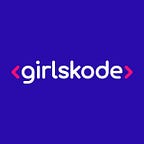NFT & Brand: The Future of Marketing?
The development of internet access and technology has made almost all activities concentrated in the digital realm. This also affected the work market which then ‘forced’ brands that initially only used offline sales and branding methods slowly began to switch to online activities.
Branding activity in a brand or business that is being built is very important to build public awareness of the product. Luckily, with so many applications and the opportunity to advertise and sell digitally, it can be accessed easily through platforms such as Facebook or Instagram ads. However, recently the public has been shocked by the presence of NFT (Non-fungible tokens). Apart from being the latest investment tool for art collectors, NFT is also expected to be a promising platform in the future. What are the chances like?
NFT itself is a blockchain-based digital file that allows users to access a number of superlative and unique ‘artifacts’ through the bidding process. These artifacts are equivalent to authentic properties that can only be owned by an authorized owner. The level of scarcity of goods in the NFT has more selling value and the ownership is equivalent to owning the goods physically. As a digital asset, NFT can be a portal for collectors looking for rare assets around artwork, music, audio, video, fashion, online games, and so on. Despite being relatively new, NFT has managed to amass an overall total generated market of $2 trillion dollars in the second quarter of 2021.
Through NFT’s unique way of helping the process of branding awareness of a product, NFT can be a new way to be used as a new marketing strategy. Brands using mobile campaigns through NFT can quickly distribute them across multiple digital platforms. NFT also assists brands in providing marketing bonuses to increase consumer confidence such as shopping vouchers or gifts that can be personalized based on customer wishes.
NFT can help brands broadcast their products in the form of digital assets to be advertised to more users or as a complement to physical goods that are already available. Apart from being a digital asset platform, brands that use NFT can also access data that has been systematically collected or reward crowdfunding. Several well-known international brands have used NFT as a new way to implement their product or business marketing strategy. For example, Coca-Cola conducted an NFT auction for its digital asset which was named “The Friendship Box”.
The asset reimagines a vintage Coca-Cola cooler with dynamic motion and illumination featuring three other NFTs inside: a custom-designed Coca-Cola Bubble Jacket to be worn in the Decentraland 3D virtual reality platform; a Sound Visualizer illustrating the recognizable sonics of enjoying a Coca-Cola; and a Coca-Cola Friendship Card with refreshed artwork from 1948. The winning bidder will also receive an in-real-life, fully stocked Coca-Cola refrigerator.
Besides Coca-Cola, Pizza Hut has also launched its first NFT pizza in 2018 which provides NFT pizza with an 8-bit style which is available in several choices of typical Pizza Hut variants — Hawaiian, Pepperoni, Canadian, and Margharita.
Looking at the potential profits and distributions that exist in NFT, we can see how future marketing can be very dependent on NFT. Everything that is only available in physical form, now also has a selling value in the form of digital assets. In your own opinion, can NFT be the pillar of marketing in the future?
Written by Melisa Nirmala Dewi
Source:
Dan, Avi. (2021). NFT Reshape Brand Marketing in The Creator Economy. [Daring] Forbes. https://www.forbes.com/sites/avidan/2021/09/13/nfts-reshape-brand-marketing-in-the-creator-economy/?sh=313b4d48da2d (Diakses pada 16 September 2021).
